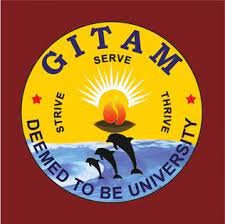Discover the admission process for the Bachelor of Science (B.Sc.) in Environmental Science course. Embark on a journey to understand and protect the planet's ecosystems.
Admission Process for Bachelor of Science (B.Sc.) Environmental Science Course
Welcome to the Bachelor of Science (B.Sc.) in Environmental Science program! As the course coordinator, I'm delighted to provide you with a comprehensive guide to the admission process. This information will ensure you have a clear understanding of the requirements, selection criteria, and essential deadlines for this exciting academic journey.
Application Requirements:
Educational Qualifications: The foundation for admission to the B.Sc. in Environmental Science program is a completed high school education or an equivalent qualification. You will be required to submit your high school transcripts or certificates as proof of completion.
Prerequisite Courses: Some institutions may stipulate specific prerequisite courses for admission. These courses often include biology, chemistry, mathematics, or related subjects. Check with the university or college you intend to apply to for their specific prerequisite requirements.
Standardized Tests: Depending on the institution, you may need to provide standardized test scores as part of your application. Common tests considered include the SAT or ACT. Institutions vary in their requirements, so it's essential to review the admission guidelines of your chosen institution carefully.
Letters of Recommendation: Many universities and colleges require applicants to submit letters of recommendation. These letters should ideally come from teachers, mentors, or professionals who can speak to your academic capabilities and character.
Personal Statement or Essay: A personal statement or essay is a vital part of your application. This is an opportunity for you to express your passion for environmental science and articulate your career aspirations. Use this essay to highlight your motivations and how this program aligns with your goals.
Resume or Curriculum Vitae (CV): Including a well-structured resume or CV is advisable. This document should detail your extracurricular activities, volunteer work, internships, and any relevant experiences that demonstrate your commitment to the field.
Interviews: Some institutions incorporate interviews into their admission process. These interviews allow you to showcase your enthusiasm for environmental science and discuss your suitability for the program.
Application Process:
Research Institutions: Begin by researching universities or colleges that offer a B.Sc. in Environmental Science. Consider factors such as location, program curriculum, faculty expertise, available resources, and any unique features that align with your interests.
Online Application: Most institutions provide an online application portal accessible through their official website. Create an account, complete the application form thoroughly, and submit the necessary application fee. Ensure that you follow the institution's specific application guidelines.
Transcripts and Required Documents: Gather your high school transcripts, standardized test scores (if applicable), letters of recommendation, personal statement or essay, and your resume or CV. Submit these documents through the application portal. Ensure that all information is accurate and up-to-date.
Application Fee: Pay the application fee, which varies from one institution to another. Some universities offer fee waivers or reduced fees for eligible students, so be sure to explore these options.
Interviews: If interviews are part of the admission process, be prepared. Familiarize yourself with potential questions, express your passion for environmental science, and present your qualifications confidently.
Selection Criteria:
The admission process for the B.Sc. in Environmental Science program is highly competitive, and institutions carefully consider various factors when making their selections:
Academic Performance: Your high school grades and standardized test scores carry significant weight in the admission process. Institutions often establish minimum GPA and test score requirements.
Relevance of Prerequisite Courses: Your performance in prerequisite courses is evaluated to ensure you have a strong academic foundation in relevant subjects.
Letters of Recommendation: Strong letters of recommendation can greatly influence the admission committee's assessment of your character and capabilities.
Personal Statement or Essay: A well-crafted personal statement or essay can set you apart from other applicants. Use this opportunity to convey your passion, dedication, and alignment with the program's goals.
Interview Performance: If interviews are conducted, your communication skills, knowledge of environmental science, and enthusiasm for the field will be evaluated.
 3 Years
3 Years
 Under Graduate
Under Graduate
 Science
Science
 Full Time
Full Time




















 back
back

